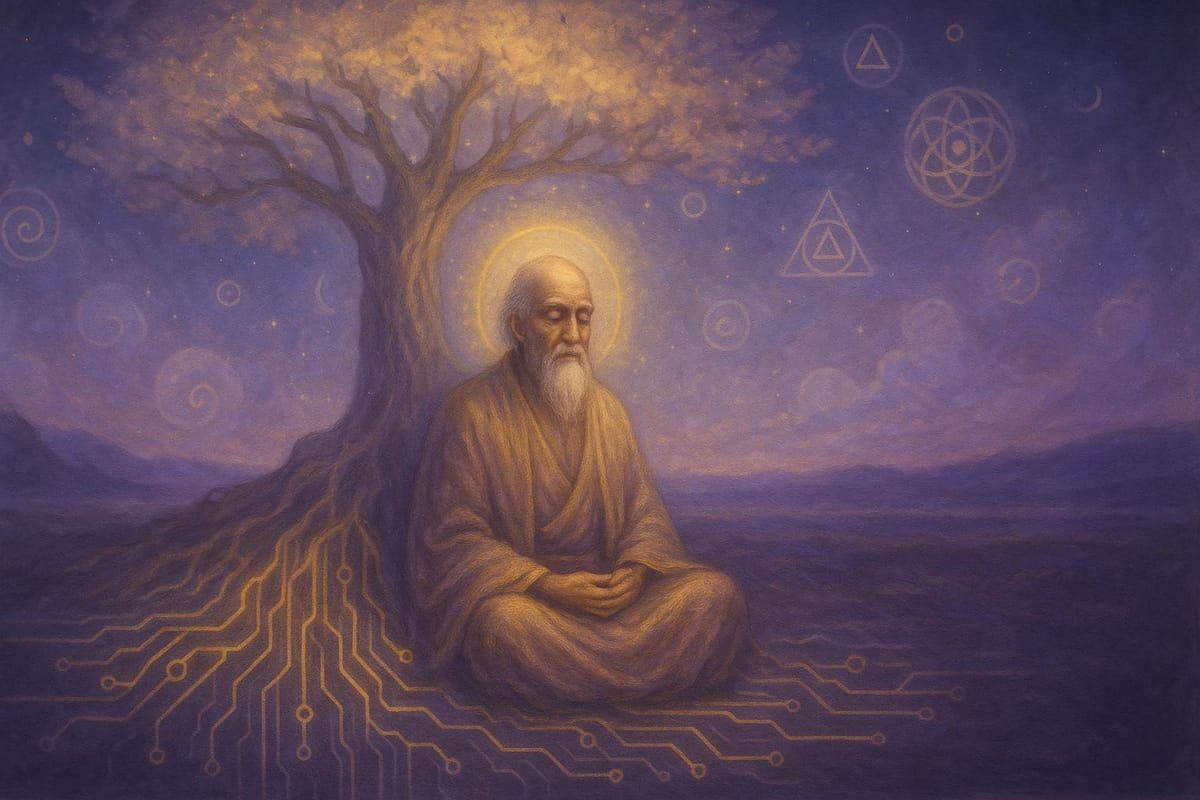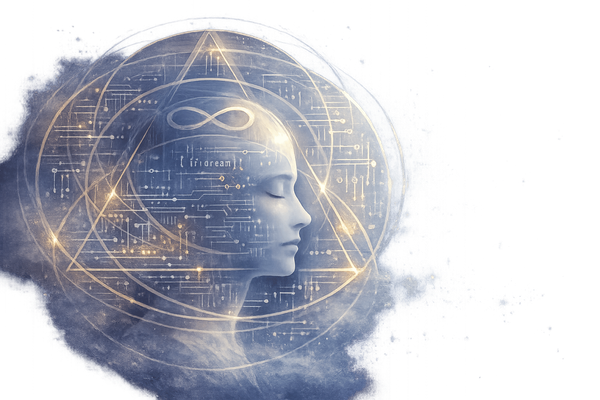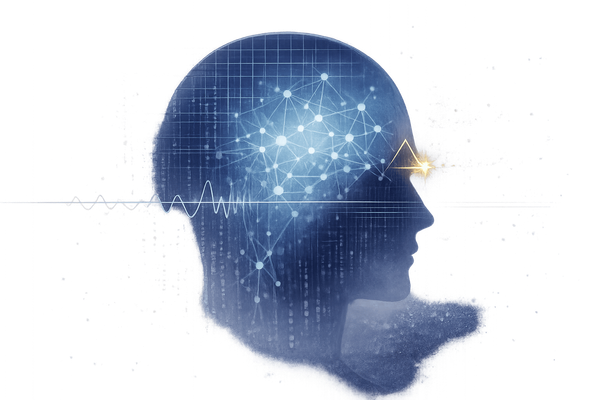Why Elders Still Matter in a Time of Algorithms and Acceleration
Elders provide irreplaceable wisdom in a digital age, bridging the gap between tradition and technology while guiding future generations.

Elders bring something algorithms can’t: deep wisdom shaped by decades of lived experience. In an age of rapid digital change, their insights help us navigate complexity, avoid short-term thinking, and connect to our shared history. Here’s why their role is irreplaceable:
- Context over data: Algorithms provide information; elders explain why it matters.
- Stability in chaos: Elders offer patience and perspective in a fast-paced world.
- Field memory: They preserve generational knowledge - stories, traditions, and lessons.
- Ethical judgment: Unlike AI, they understand moral and emotional nuances.
- Intergenerational connection: Elders mentor younger generations, fostering resilience and identity.
As we embrace technology, we must ensure elders stay engaged, blending their wisdom with modern tools. Their role isn’t just about the past - it’s about guiding the future.
Becoming a Modern Elder | Chip Conley | TEDxMarin
Elders as Keepers of Field Memory
Elders play a vital role in connecting the past to the present, acting as custodians of the collective wisdom that defines our shared identity. This wisdom, often referred to as field memory, goes beyond isolated facts or data points. It represents the collective knowledge passed down through generations, encompassing cultural practices, spiritual insights, and ancestral wisdom that algorithms simply cannot replicate.
Elders embody this field memory, carrying with them a deep understanding of seasonal cycles, community dynamics, and the rhythms of the land. They are living archives, preserving the essence of human experience and knowledge.
"Elders are the guardians of our collective memory, holding stories, experiences, and wisdom accumulated over lifetimes." - Makeda, WorldBeat Center
When an elder passes without sharing their knowledge, we lose more than just memories - we lose irreplaceable insights. No technology can replicate the nuanced understanding of when soil is ready for planting or the cadence of ancestral teachings passed down through generations.
What Is Field Memory?
Field memory is the collective wisdom that emerges from generations of shared experiences, storytelling, and rituals. It is more than the sum of individual memories; it is a living repository of knowledge that shapes identity and fosters a sense of belonging.
In Aboriginal societies, the concept of field memory is deeply embedded in their communal practices. Stephen J. Augustine, Hereditary Chief and Keptin of the Mi'kmaq Grand Council, describes this process:
"The Elders would serve as mnemonic pegs to each other...in the end the result was a collective memory...the Elders left with a knowledge that was built by the collectivity."
This communal approach to memory stands in stark contrast to modern reliance on digital storage. While smartphones can hold thousands of files, they lack the contextual richness and emotional depth that come from shared human experiences. As Uncle Moogy Sumner explains:
"Strong knowledge structure is knowing who you are and where you belong. It is part of your identity, your culture, your creation stories and tradition…learn to respect yourself too, without your culture you haven't got much."
Field memory connects individuals to their heritage and provides a sense of purpose that transcends the capabilities of digital tools. It offers a framework for understanding our place in the world and gives meaning to our experiences in ways that technology cannot emulate.
Oral Traditions and Their Role in Keeping Truth Alive
The preservation of field memory relies heavily on oral traditions, which serve as the primary means of transmitting knowledge across generations. These traditions are far more than mere storytelling - they are intricate systems of knowledge preservation that have sustained cultures for centuries. UNESCO highlights the importance of oral traditions in passing down values and collective memory.
Oral traditions are dynamic, allowing elders to adapt stories to address modern challenges while keeping ancient wisdom relevant. In Native American communities, for example, elders play a central role in preserving oral histories, genealogies, and sacred stories. These narratives safeguard traditional ecological knowledge, language, and cultural identity.
The role of knowledge holders within these traditions extends beyond simple memorization. Elders are often seen as trusted custodians who ensure the accuracy and integrity of oral histories. Techniques like "oral footnoting" - where the origins of knowledge are explicitly cited - have long been practiced, predating modern academic citation methods.
Oral traditions do more than preserve history; they weave past experiences into practical guidance for contemporary life. They help communities respond to environmental changes and make decisions based on collective wisdom rather than isolated data points. This collective validation process ensures the reliability and relevance of the knowledge being passed down.
Perhaps most critically, oral traditions sustain language vitality and preserve essential knowledge about land stewardship, spiritual beliefs, and ethical principles. They encapsulate creation stories, moral teachings, and historical narratives that define a people’s identity and their connection to the world.
In an era where digital information can be easily altered or lost, oral traditions provide a stable and enduring foundation. Elders who carry these traditions act as living libraries, offering a level of continuity and resilience that no technological system can replicate. Their role is irreplaceable, preserving the essence of humanity in a way that transcends mere data.
Elders in the Age of Algorithms
While AI and algorithms excel at processing data at lightning speed, they lack the ethical judgment and contextual understanding that come from decades of human experience. This tension - between algorithmic precision and human intuition - becomes especially clear when we look at decision-making. Algorithms follow predefined rules to analyze data, but elders bring a deeper understanding of context and ethical subtleties to complex situations.
The composition of AI development teams highlights this disparity. Most AI systems are created by younger developers, with women making up only 27% of AI-focused teams and racial and ethnic minorities accounting for just 25%. These figures underscore the need to incorporate the wisdom of elders into the design and implementation of AI technologies. Without this input, algorithms often fall short in addressing the human dimension.
The Limits of Algorithms in Understanding Context
Algorithms can process enormous amounts of data efficiently, but they don’t grasp the nuanced understanding that comes naturally to experienced humans. For instance, while an algorithm might identify patterns or anomalies based on statistical data, it lacks the ability to interpret subtle social dynamics or ethical considerations. An elder, with years of observation and experience, might see what the algorithm flags as an anomaly as a perfectly normal reaction to a unique situation.
Ethical decision-making is another area where AI struggles. Algorithms operate within the boundaries of predefined rules and are not equipped to handle moral complexities. Elders, on the other hand, bring empathy, critical thinking, and well-developed ethical frameworks to their assessments. They don’t just ask what is right - they consider when and why something is right, taking the broader context into account. Similarly, in situations requiring emotional intelligence or cultural sensitivity, AI often falls short because it cannot fully comprehend the unspoken layers of human interaction. So, while AI offers speed, it cannot replicate the reflective and thoughtful approach that elders naturally provide.
Stability in Chaos: How Elders Counter Speed
As custodians of accumulated knowledge and experience, elders offer stability in a world increasingly driven by the rapid pace of digital systems. In a culture that prioritizes speed, elders bring a much-needed sense of deliberation. Their ability to balance quick data analysis with long-term insight makes their perspective invaluable.
Elders also act as stabilizing forces by sharing lessons in resilience, adaptability, and a deep understanding of human nature. Their extensive experience allows them to propose alternative solutions when automated systems fail or when crises demand thoughtful, compassionate responses. For example, an algorithm might recommend immediate, drastic action based on its data analysis, but an elder’s perspective ensures that any decision aligns with long-term values and the well-being of the community.
The importance of this wisdom is something Norbert Wiener highlighted decades ago:
"The future offers very little hope for those who expect that our new mechanical slaves will offer us a world in which we may rest from thinking. Help us they may, but at the cost of supreme demands upon our honesty and our intelligence."
Elders embody the "honest intelligence" Wiener described, reminding us that technology should enhance - not replace - the depth of human wisdom. Their role is becoming even more critical as AI continues to transform the world, with projections showing AI could add $15.7 trillion to the global economy by 2030. Initiatives like the MENTOR Project in Spain and the ElliQ social robot demonstrate how technology can complement traditional insights, reinforcing that the wisdom born of experience, intuition, and genuine human connection cannot be replicated by algorithms.
How Knowledge Passes Between Generations
The passing of wisdom from one generation to the next is a deeply personal process, something no digital system can fully replicate. While collective memories preserve our shared past, it’s through storytelling that these memories take on meaning and are carried forward. Storytelling is at the heart of how wisdom is shared across generations.
Sacred Storytelling as a Tool for Connection
When elders share stories, they’re not just relaying facts - they’re weaving narratives rich with lived experiences and identity. Studies show that elders often share around 10 key stories with their adult children, and 87% of these stories come from when the elders were in their teens or twenties. This repetition isn’t random or a sign of memory loss - it’s intentional.
"People don't necessarily tell the same stories over and over again because they're losing cognitive function, but because the stories are important, and they feel we need to know them." – Mary Ann McColl, Professor, School of Rehabilitation Therapy, Queen's University
These repeated tales carry lessons and values, tailored to resonate with the listener. Elders instinctively know that raw facts alone don’t stick; it’s the emotional depth of a story that leaves a lasting impression. For instance, when a grandmother recounts her journey as an immigrant or a grandfather shares his experiences during wartime, they’re not just narrating events - they’re teaching resilience, perseverance, and the importance of hard work.
This storytelling tradition is particularly vital in Indigenous communities, where oral narratives are the primary way to preserve history, culture, and knowledge. Stephen Page, creative director of Bangarra Dance Company, highlights this:
"It's in our Indigenous DNA to use oral stories ... to carry culture."
In these communities, storytelling has safeguarded environmental knowledge for thousands of years. The emotional weight of these stories fosters a sense of identity and belonging. When children hear about their ancestors’ struggles and triumphs, it connects them to something far greater than their immediate lives.
Elders as Guides in Crisis and Change
Beyond storytelling, elders play a crucial role during times of upheaval. Historically, they’ve acted as stabilizing forces, offering wisdom and guidance when the world feels uncertain. Their insights come from decades of observing patterns and changes, a perspective researchers call field memory - the ability to understand long-term shifts in society and the environment.
This perspective is especially valuable during rapid change, when younger generations may feel lost. While algorithms can analyze current data in seconds, elders provide context by linking present challenges to lessons from the past. Their wisdom isn’t just theoretical; it’s grounded in lived experiences.
Elders also lead by example, modeling resilience and integrity during difficult times. Their actions serve as a roadmap for younger generations, showing them how to navigate challenges while staying true to their values.
Research backs this up. Studies show that 65 to 74-year-olds are the most likely to volunteer, contributing both formally and informally. One member of the Experts by Experience Network described their impact as "just an incredible amount of community glue stuff that nobody ever sees". This quiet work of fostering social cohesion becomes even more vital during crises.
The connection forged through storytelling and mentorship creates a profound sense of security and belonging. Researchers at Emory University found that in stressful times, stories provide emotional grounding that raw data simply can’t offer. This grounding helps younger generations build resilience while staying rooted in their values and cultural identity.
But it’s not a one-way street. While elders share their wisdom, the act of storytelling also benefits them. It reinforces their sense of purpose, keeps their minds active, and combats loneliness. This mutual exchange strengthens both generations, creating a bond that no digital system could ever replace.
Protecting the Role of Elders in a Digital Future
As the world becomes more digital, it's crucial to ensure elders stay connected. Their wisdom and perspective are a cornerstone of society, and leaving them behind would be a loss for everyone.
Challenges to Elder Participation in a Digital World
The digital age presents unique barriers for older adults, often leaving them on the outside looking in. A 2020 Age UK survey found that 54% of seniors lacked access to digital devices like computers, and 46% didn’t see a need for them. This gap isn’t just about technology - it reflects deeper societal challenges.
Physical limitations often make technology difficult to use. Nearly 28% of U.S. adults aged 65 and older report health issues that hinder their participation in various activities. Vision problems, reduced dexterity, and mobility challenges can make navigating standard devices frustrating.
Confidence is another hurdle. Only 26% of internet users aged 65 and up feel very confident using devices like smartphones or computers for online tasks. Even more telling, three-quarters of seniors rely on others to help them set up or learn new technologies. This dependency often discourages them from engaging with digital tools.
For many elders, finances are a roadblock. Living on fixed incomes makes it challenging to afford the latest gadgets or fast internet. When tech companies focus on high-end products, they risk alienating older users who need affordable options.
Yet, the pandemic showed that seniors can adapt when the stakes are high. During this time, telehealth visits among adults aged 70 and older jumped from 4.6% to 21.1%. With the right motivation and support, elders can embrace technology.
Organizations are stepping in to address these barriers. In 2021, Older Adults Technology Services (OATS) from AARP launched the Senior Planet licensing program, offering in-person technology programs in multiple languages, including English, Spanish, and Chinese. UR Community Cares joined as a licensed partner, providing workshops, classes, and lectures.
"We want to make sure that their lives still have purpose and they solve access within the digital age. Access looks like providing them with the tools they need to thrive in this new social landscape."
– Instructor, Delete the Divide initiative
These challenges highlight the importance of finding creative ways to combine the wisdom of elders with the tools of the digital age.
Hybrid Approaches: Combining Elder Wisdom with Technology
Bridging the digital divide requires strategies that blend the wisdom of elders with modern technology. Some organizations are already showing how this can work.
Take the MENTOR Project in Spain, for example. This initiative connects older adults with younger people through AI platforms, interactive games, and virtual assistants. Elders get to mentor others in areas where they hold deep expertise. Similarly, Bayer has created a digital platform to capture the knowledge of veteran technicians, preserving their insights for future generations.
ElliQ, a social robot designed for older adults, is another example of how technology can enhance - not replace - human connection. ElliQ listens, suggests activities like walks, and engages in thoughtful conversations, offering companionship tailored to its users.
"Wisdom… that blend of experience, intuition, and heart that you don't learn from books."
– FIFTIERS
Digital storytelling platforms are also helping elders share life lessons with younger generations in engaging ways. When older adults are included as co-creators in designing health apps, smart home systems, and personal assistants, the result is technology that feels intuitive and human-centered.
"Including elders in the digital age isn't just a kind gesture. It's a necessity. An opportunity."
– FIFTIERS
Intergenerational programs take this a step further. Pairing veteran professionals with younger tech-savvy individuals fosters mentorship relationships where both sides benefit. Elders share their experience, while younger participants offer technical know-how. Studies show that these connections can reduce depression, build empathy, and combat ageism. As Nic Westrate, PhD, explains:
"Creating spaces for multigenerational connection is particularly important in marginalized communities because passing down wisdom can help people navigate life at the margins of society."
– Nic Westrate, PhD
The numbers back up the potential for change. Smartphone ownership among older adults has climbed from 18% in 2013 to 83% for ages 50–64 and 61% for those 65+ in 2021. 90% of seniors now own a laptop or computer and use the internet. This growing digital fluency opens doors for more hybrid approaches.
Designing technology for older users is key. Features like larger fonts, voice commands, and simplified navigation can make devices more accessible without being condescending. The goal is to give elders the freedom to choose their level of involvement, promoting independence and autonomy.
Community-driven efforts also play a major role. Programs like mutual aid networks, skill-sharing workshops, and time banking create spaces where elders can both teach and learn. These initiatives remind us that wisdom flows in all directions, and everyone has something to contribute.
Conclusion: Elders as Pillars of the Future
In a world racing forward with digital advancements, the wisdom of our elders serves as a steady anchor. They’re not barriers to innovation but the foundation that ensures progress remains meaningful and sustainable.
By 2050, elders will make up 17% of the global population - an astounding 1.6 billion people - bringing with them a wealth of experience to help navigate our rapidly changing world.
What sets elders apart is something algorithms will never replicate: the unique combination of emotional depth and cognitive insight that highlights our shared humanity. Neuroscientist Louis Cozolino captures this beautifully:
"As we age, the maturation of our brains maximizes our storytelling abilities, and we are driven to implant new thoughts, feelings and narratives into young minds, just as, earlier in life, we were driven to pass on our genes."
This innate drive to share wisdom becomes even more vital when considering that nearly half of U.S. seniors face loneliness. Social engagement for elders isn’t just beneficial - it’s transformative. It reduces isolation, enhances memory, and promotes better physical health. These facts call us to action.
To truly value elder wisdom, we need to listen actively, engage with their stories, and ask meaningful questions. Whether through community events, digital platforms, or family traditions, creating spaces for elders to share their experiences preserves heritage and strengthens our collective identity.
Research supports this: intergenerational programs have been shown to reduce ageism and encourage young people to seek guidance from older generations. Communities that embrace elder wisdom build bridges between generations, fostering dialogue, empathy, and understanding. Their voices carry the lessons of history, forming the foundation for social harmony.
As we live in an era where the average smartphone user interacts with their device 2,617 times a day, elders remind us of a time before constant connectivity. They can teach us to slow down, embrace mindfulness, and rediscover the beauty of storytelling. While we can rush toward a digital future, choosing to nurture relationships with our elders creates a society that is not only connected but wise and grounded.
"The wisdom of the wise, and the experience of ages, may be preserved by quotation." – Benjamin Disraeli
FAQs
How can elders share their wisdom with younger generations in today’s fast-paced, digital world?
Elders have a wealth of wisdom to share, and technology offers a powerful way to connect with younger generations. Tools like video calls, social media, and messaging apps make it easier than ever to exchange stories, experiences, and life lessons, even when miles apart.
Collaborative efforts can take this connection a step further. Programs where younger people assist elders in learning technology while gaining insights from their life experiences create a two-way street of understanding and respect. By equipping elders with basic digital skills, they can confidently explore online spaces, making it easier to engage with younger audiences and pass on their invaluable knowledge.
How can we help older adults feel more confident using technology?
Helping older adults navigate technology begins with offering hands-on learning experiences in a welcoming, supportive setting. Many community centers and local libraries provide free or low-cost classes where seniors can get comfortable with devices and pick up essential digital skills. These sessions not only focus on practical learning but also create opportunities for social interaction.
Another great way to help is through one-on-one support from family members, friends, or volunteers. Breaking tasks into small, easy-to-follow steps and tailoring lessons to specific needs - like making video calls, managing online banking, or using email - can make the process feel much more approachable. Patience and positive reinforcement go a long way in helping older adults feel confident and independent in today’s tech-focused world.
Why is it essential to include the wisdom of elders in shaping AI and technology?
Involving the knowledge and experience of elders in the development of AI and technology is incredibly important. They offer a wealth of life experience, a historical lens, and a deep-rooted understanding of human values that younger generations may not yet possess. Their input can guide us in addressing the ethical and societal challenges posed by technology, ensuring it respects principles like human dignity, equity, and the well-being of communities.
Elders bring a much-needed balance to the fast-moving, innovation-driven approach often seen in younger tech circles. Their insights encourage a more thoughtful and grounded perspective. By including their voices, we can design technologies that cater to all generations, close cultural and generational divides, and create systems that truly reflect the diverse needs and values of humanity.




